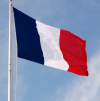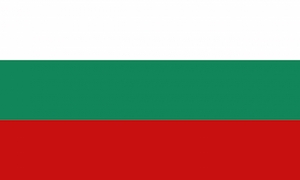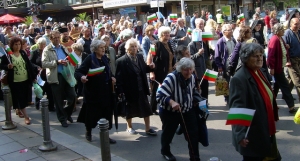Résultats de la recherche pour : Daniela Kalkandjieva
Revue de presse, 19 octobre
France
« Un millier de personnes se sont recueillies samedi devant le collège du Bois d'Aulne à Conflans-Sainte-Honorine (Yvelines), au lendemain de la décapitation d'un professeur d'histoire, Samuel Paty, qui avait montré des caricatures de Mahomet à sa classe » — "Il ne faut pas céder à la peur" : un millier de personnes se réunissent en hommage à l'enseignant décapité (AFP, La Libre Belgique)
« Des dizaines de milliers de personnes ont manifesté ce dimanche en France après la décapitation d’un professeur d’histoire dans une rue de Conflans-Sainte-Honorine, dans l’agglomération parisienne. Vendredi, l'attentat islamiste a provoqué une immense émotion en France. Cinq ans après la série d’attaques de 2015-2016, les fractures s’aggravent sur la question de l’articulation entre la laïcité et les identités religieuses » — La France sous le choc après l’assassinat d’un enseignant (Vatican News)
Revue de presse, 9 juillet
Bible
« Centre de recherche et d’enseignement des sciences bibliques, l’École biblique et archéologique française de Jérusalem est portée par une communauté de dominicains. Connue pour la rédaction de la Bible de Jérusalem et l’étude des manuscrits de Qumrân, l’École biblique continue de vivre, 125 ans après sa fondation. Elle travaille actuellement sur le projet BEST, pour la ‘Bible en ses traditions’ » — BEST, le projet pharaonique des dominicains de Jérusalem (Sophie Delhalle, Cathobel)
Mali
« La question mérite d'être posée alors que le religieux semble clairement prendre le dessus sur le politique à travers les idées que les organisations musulmanes imposent progressivement » — Mali : l'islam influence-t-il vraiment la politique ? (Boubacar Haidara pour The conversation.com, Le Point)
Bulgaria
Baptized by Byzantium in 865, Bulgarians adopted the Byzantine Christian tradition known as Eastern Orthodoxy. Muslims constitute the second most significant religious community, thanks to the spread, in the fourteenth century, of Islam during the Ottoman conquest of the Balkans. At the end of World War II, 85 % of Bulgarian citizens were Orthodox and 13 % were Muslim. Tiny congregations of Catholics, Protestants, Jews, etc. also exist. Even though they were suppressed under communism, these religious denominations very quickly returned to the public square once the Iron Curtain had fallen, a tendency which was also stimulated by the 1991 Constitution, which proclaimed full-scale religious freedom.
The encounter between the religious and the secular in post-atheist Bulgaria
Baptized by Byzantium in 865, Bulgarians adopted the Byzantine Christian tradition known as Eastern Orthodoxy. Muslims constitute the second most significant religious community, thanks to the spread, in the fourteenth century, of Islam during the Ottoman conquest of the Balkans. At the end of World War II, 85 % of Bulgarian citizens were Orthodox and 13 % were Muslim. Tiny congregations of Catholics, Protestants, Jews, etc. also exist. Even though they were suppressed under communism, these religious denominations very quickly returned to the public square once the Iron Curtain had fallen, a tendency which was also stimulated by the 1991 Constitution, which proclaimed full-scale religious freedom.









 MangoGem
MangoGem